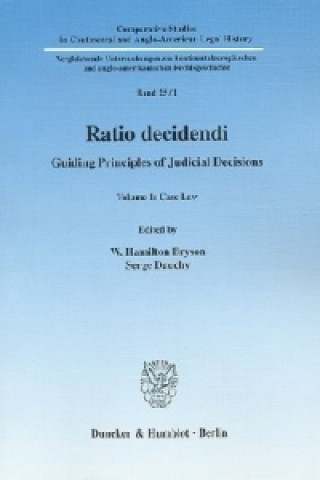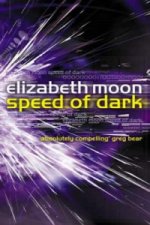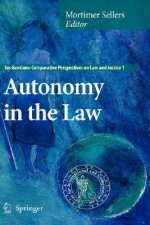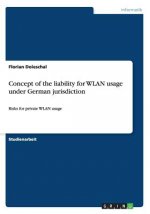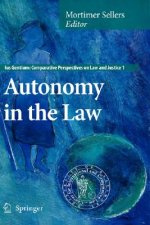
Delivery
Shopping guide





Doesn't suit? No problem! You can return within 30 days
 Gift voucher
any value
Gift voucher
any value
You won't go wrong with a gift voucher. The gift recipient can choose anything from our offer.
Case Law
 German
German
 202 b
202 b
 Delivery to Austria
Delivery to Austria
30-day return policy
You might also be interested in


Although the problem of ratio decidendi concerns the essence of law and justice, very little comparative work between the Continental and Anglo-American legal systems has been done on the topic. Legal literature often repeats that it is one of the sharpest points of contrast between the two legal cultures. Within the English speaking legal system, multiple opinions, both concurring and dissenting, prevail where dissent among Continental judges only occurs behind closed doors: the published decision indeed is always presented as the single and incontestable opinion of the whole court. Historical reasons are generally put forward to explain that contrast. Where in the Anglo-American Common Law system judges are asked - and always have been asked - to present the materials and reasons upon which they based their judicial opinions, in Ancien Regime continental Europe it was not considered necessary to formulate the reasons of a decision and in most courts of the European Continent it was even formally forbidden to the judges, until the end of the eighteenth century, to write down or even communicate orally"the secrets of their discussions and deliberations".§To comparatists, this reveals two different cultures among judges and lawyers. In Continental Europe there is much emphasis on the idea of judging as a science which can be learned and reproduced with an impersonal rigour. The Anglo-American judge is not considered to be such a trained scientist, he is merely a practised craftsman. Can the history of ratio decidendi - but also the history of law and justice from the Middle Ages to the nineteenth century - therefore be reduced to a total contradiction between two legal cultures?
About the book
 German
German
Categories


 Contact
Contact How to shop
How to shop















